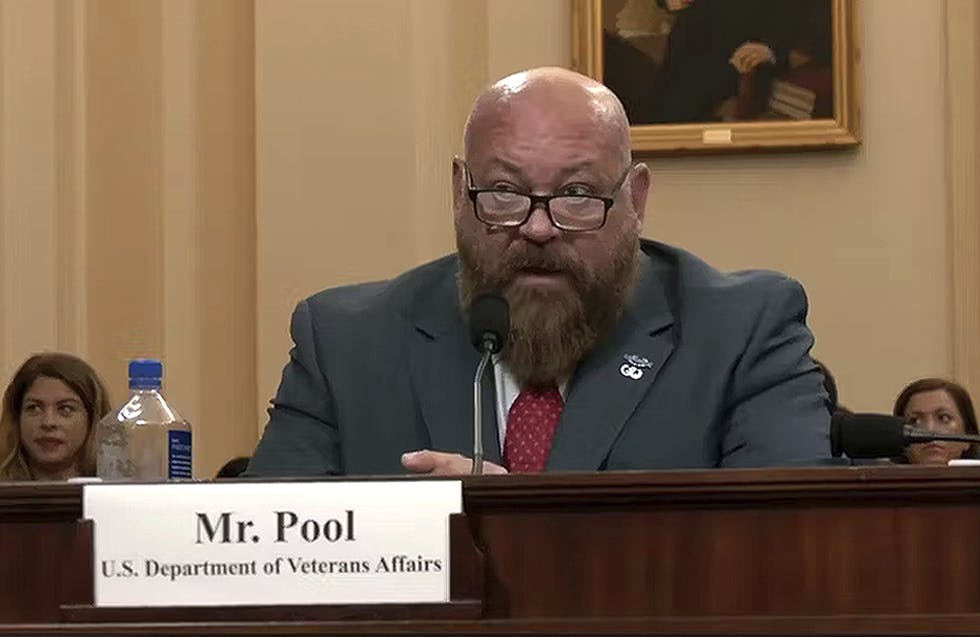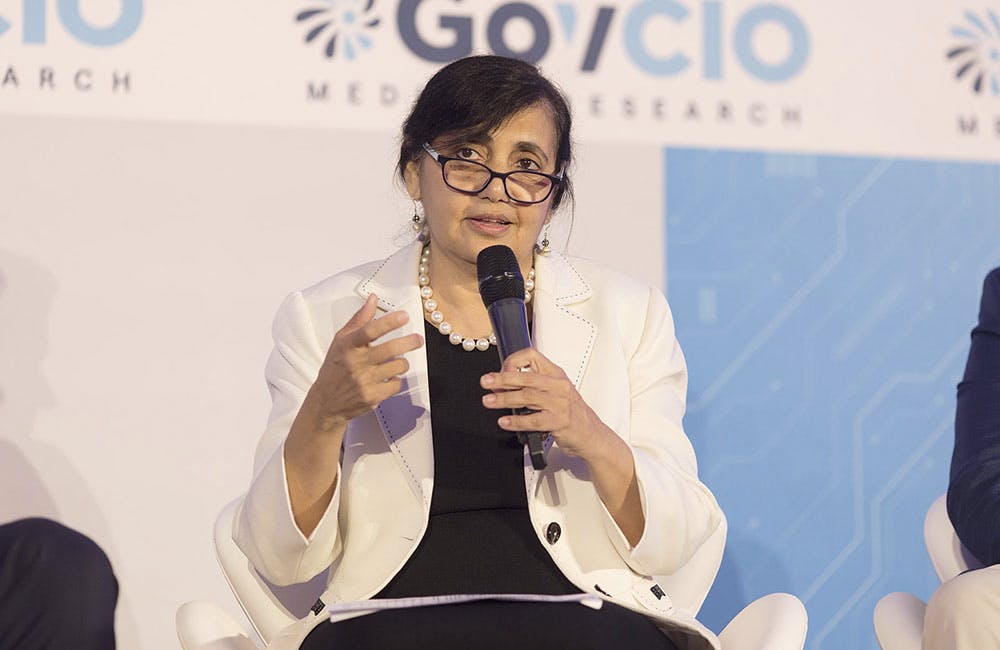VA: The Future of Work Requires a Change
The agency is embracing new strategies to navigate an evolving talent, training and recruiting environment.

Mass layoffs in Silicon Valley coupled with widespread technology talent shortages is creating new opportunities for government to bolster its workforce. The Department of Veterans Affairs is modernizing its workforce strategy to attract new talent, VA’s Deputy Chief Information Officer and Chief People Officer Nathan Tierney told GovCIO Media & Research.
Tierney is focusing on offering incentives like remote work and special pay rates for technology talent to incentivize people to join the agency’s tech team and compete with private industry.
“Over 62% of our IT workforce is working remotely. We are going to continue to expand as we modernize our workforce,” Tierney said. “Data, AI and other advanced techniques that you see in the private sector, we need to bring into the public sector if we’re going to achieve the vision of being a world class IT organization.”
Tierney added 38% of employers report difficulty in hiring employees with the right technical skills. VA is improving skills-based training, mapping career tracks, streamlining job postings and application screenings and offering new apprenticeship programs to support VA’s top three workforce priorities it identified as “recruit, retain and train.”
In VA’s Office of Information and Technology (OIT), most of the workforce is over the age of 52. Of that group, 30% are eligible for retirement — the leading reason behind the agency’s tech talent turnover. To attract and train younger talent, VA is creating new recruitment programs, such as its cybersecurity apprenticeship program in partnership with the White House and Department of Labor.
“We’re actually the first government agency other than the Defense Department to do so with an apprenticeship program,” Tierney said.
VA developed a scalable, sustainable program model, which will provide a pathway to quickly hire a diverse population into the federal government. The program specifically focuses on hiring cybersecurity roles to protect vulnerable IT systems’ dependability, integrity and data privacy. The first cohort of eight to 10 apprentices will begin February 2023.
Pay disparity between private sector and government positions are also a challenge. To make VA’s salaries more competitive with industry, the agency collaborated with the Office of Personnel Management in July 2022 on a special salary rate for IT specialists.
“If that is approved in January 2023, that affects over 75,000 federal workers that are IT specialists in 2210 series,” Tierney said. “I’m really happy about that because that’s been leading the charge in driving big change not only within the department, but also the federal government.”
Earlier this year, VA’s Senior Advisor of Cyber Workforce Management and Co-Chair of the Federal Cyber Workforce Management and Coordinating Working Group Chris Paris outlined the details of the special salary and discussed the working group’s cyber workforce report.
The September “State of the Federal Cyber Workforce Report” outlines a new strategy that calls attention to skill-based hiring and recommends revising policies so that they serve as a quick way to intake talent, not as a barrier.
“Our human resources department focused heavily on sourcing candidates and leveraging data to create that talent pipeline,” Tierney said. “The future of work requires a change. … My mantra is ‘people first, mission always.’”
This is a carousel with manually rotating slides. Use Next and Previous buttons to navigate or jump to a slide with the slide dots
-

VA CIO Targets Modern IT and Smarter Workforce Alignment
Agency leaders told lawmakers they are focused on trimming legacy systems and restructuring its workforce to streamline operations.
3m read -

Pentagon's $200M AI Contracts Signal Broader Effort to Transform Talent
The Army is leveraging Silicon Valley, reservist programs and new hiring strategies to integrate critical digital skills in its ranks.
5m read -

Inside DOD’s Push to Grow the Cyber Workforce Through Academia
Diba Hadi gives her first interview since becoming principal director of the DOD’s Cyber Academic Engagement Office.
15m listen -

Generative AI Demands Federal Workforce Readiness, Officials Say
NASA and DOI outline new generative AI use cases and stress that successful AI adoption depends on strong change management.
6m read -

The Next AI Wave Requires Stronger Cyber Defenses, Data Management
IT officials warn of new vulnerabilities posed by AI as agencies continue to leverage the tech to boost operational efficiency.
5m read -

Federal CIOs Push for ROI-Focused Modernization to Advance Mission Goals
CIOs focus on return on investment, data governance and application modernization to drive mission outcomes as agencies adopt new tech tools.
4m read -

Data Transparency Essential to Government Reform, Rep. Sessions Says
Co-Chair of the Congressional DOGE Caucus Rep. Pete Sessions calls for data sharing and partnerships to reduce waste and improve efficiency.
5m read -

DOD Turns to Skills-Based Hiring to Build Next-Gen Cyber Workforce
Mark Gorak discusses DOD’s efforts to build a diverse cyber workforce, including skills-based hiring and partnerships with over 480 schools.
20m listen -

Trump Executive Order Boosts HBCUs Role in Building Federal Tech Workforce
The executive order empowers HBCUs to develop tech talent pipelines and expand access to federal workforce opportunities.
3m read -

DOD Can No Longer Assume Superiority in Digital Warfare, Officials Warn
The DOD must make concerted efforts to address cyber vulnerabilities to maintain the tactical edge, military leaders said at HammerCon 2025.
4m read -

Tracking CIOs in Trump's Second Term
Stay informed on the latest shifts in federal technology leadership as new CIOs are appointed and President Trump's second term takes shape.
6m read -

Inside Oak Ridge National Lab’s Pioneer Approach to AI
Energy Department’s Oak Ridge National Lab transforms AI vulnerabilities into strategic opportunities for national defense.
22m listen
















